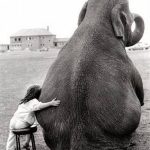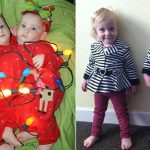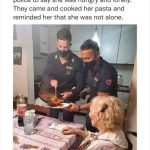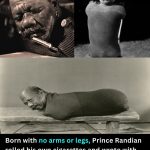Part 2 – The Typewriter and the Terrier
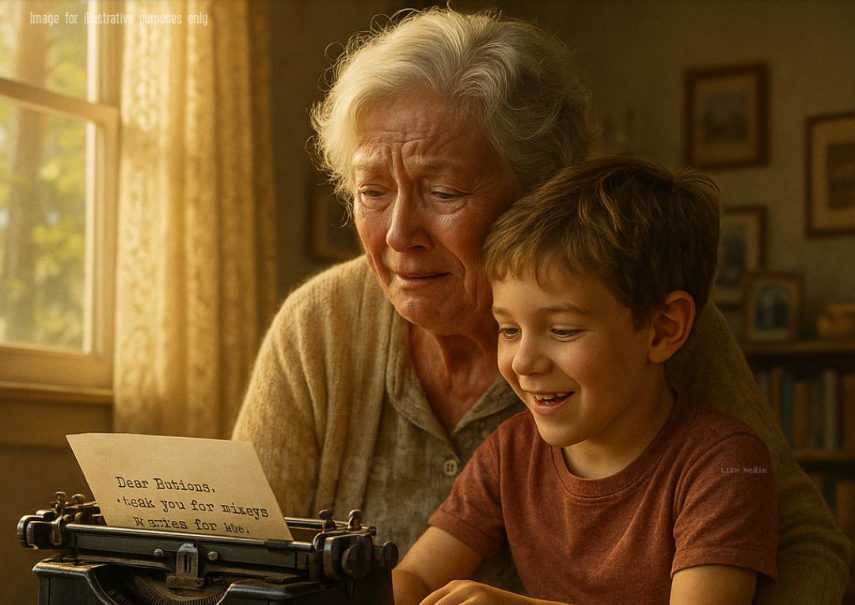

The front door shut with a gentle thud, and footsteps echoed down the hallway. Peter slid off Nora’s lap, but not before pressing the carriage return with a gleeful ding. Buttons barked once, trotting to greet the newcomer.
It was Margaret—Nora’s daughter, Peter’s mother—her arms full of groceries, hair falling loose from its bun. She stopped short when she saw the typewriter on the desk. For a moment, her face softened with something between surprise and memory.

“You kept it,” Margaret said quietly.https://www.youtube.com/watch?v=7wNhHOQKzTY
“I kept everything,” Nora answered. Her fingers hovered above the keys, the unfinished letter to Buttons waiting like a patient friend.
Peter tugged at his mother’s sleeve. “Grandma showed me! It’s like a computer, but it makes noises. And look—” he held up the page, triumphant, “—I wrote a letter to Buttons!”
Margaret smiled, though her eyes glistened. She set the groceries aside and touched the edge of the paper with careful fingers, as if it might crumble. “Your father used to write me notes on this. Short little things. Reminders, jokes, love letters he never signed.” She looked at Nora then, her voice softer. “I thought you’d gotten rid of it after he…”
“No.” Nora’s reply was sharp at first, then softened. “I couldn’t. But I couldn’t use it either.”
Peter frowned, sensing a current beneath the words he couldn’t quite name. He looked from his mother to his grandmother, then down at Buttons, who wagged his tail as if to steady the moment.
“Grandma says thank-yous last longer than flowers,” Peter declared. “Longer than people, even.”
Margaret blinked, startled. Nora’s gaze fell to her hands, twisted by arthritis but steady on the keys. The silence between them filled with things unsaid: grief that had never been shared, love that had never been spoken enough, gratitude that still waited to be written down.
Finally, Margaret whispered, “Maybe we should start again.”
Nora nodded, her throat too tight for words. She slid another sheet into the platen and pressed her daughter’s hand over Peter’s small one. Together, three generations rested their fingers on the keys.
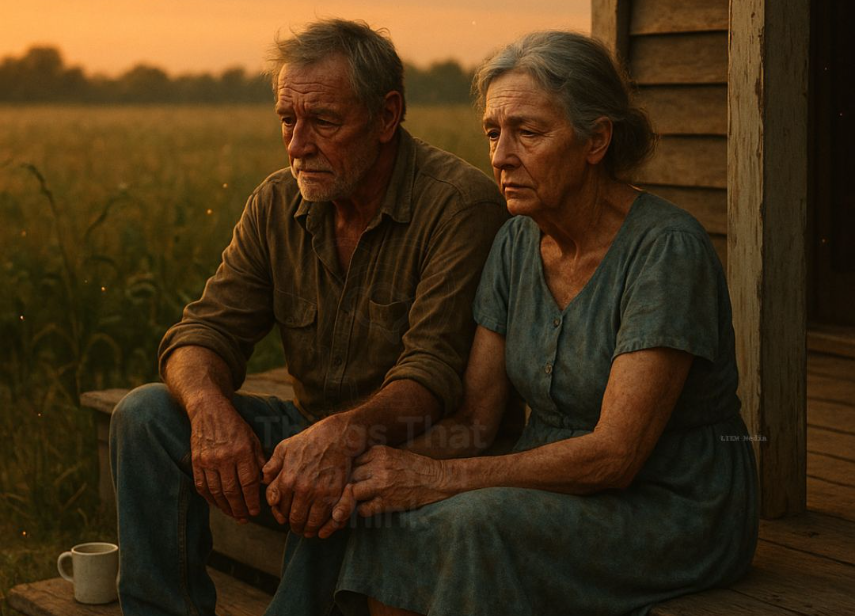
Buttons gave a low, contented sigh and curled against their feet, the steady guardian of memory and tomorrow.
The first words appeared on the page, crooked but resolute:
Dear Charles, we haven’t forgotten. Thank you.
And as the keys clacked into the quiet house, Nora realized that sometimes the truest letters aren’t written to be sent—they’re written to be remembered.

